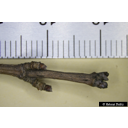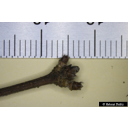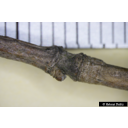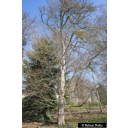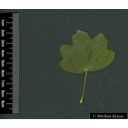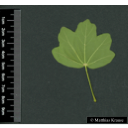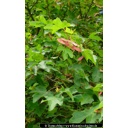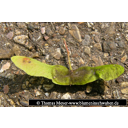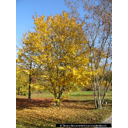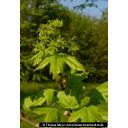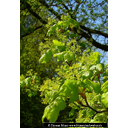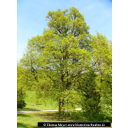Useful information about the taxon (species, subspecies, variety...)
Acer campestre L. 1753
Sapindaceae
(APG IV)field maple
Taxon concept: Schmeil-Fitschen 2019
Distribution: Europe, Caucasus, Turkey, North Iran, Morocco, Algeria
Size: 3 - 15 (m)
Flowering period: IV - V
Acer campestre L. - Accepted: Acer campestre L. bei Zander 2008; Familie: Aceraceae (Zander 2008)Acer campestre L. - Accepted: Acer campestre L. bei The Plant List (2010); Familie: Sapindaceae (APG III)Acer campestre L. - Accepted: Acer campestre L. bei The Plant List (2014), version 1.1; Familie: Sapindaceae (APG III)Acer campestre L. - Accepted: Acer campestre L. bei BfN Checklist Flora DE; Familie: Sapindaceae (APG IV)Acer campestre L. - Accepted: Acer campestre L. bei The Plant List (2014), version 1.1; Familie: Sapindaceae (APG IV)Acer campestre L. - Accepted: Acer campestre L. bei The Plant List (2010); Familie: Sapindaceae (APG IV)Acer campestre L. - Accepted: Acer campestre L. bei Rothmaler 2017; Familie: Sapindaceae (APG IV)Acer campestre L. - Accepted: Acer campestre L. bei World Flora Online - APG IV (Angiosperms); Familie: Sapindaceae (World Flora Online - APG IV (Angiosperms))
- Color of flower
- greenish-yellow
- Life form
- woody, tree
- Foliage persistence
- deciduous
- Fruit ecology
- wind-dispersed (anemochorous)
- Soil conditions
- on fresh, nutrient- and alkaline-rich, mild to moderately acidic loam soils and mull soils
- Natural occurrence (habitat)
- herbaceous oak-hornbeam forests, riparian forests, shrub-rich beech forests, hedgerows; from lowland to middle highland
- Vegetation typ and synecology (plant community)
- main occurrence in fresh Carpinion and Alno-Ulmion communities, furthermore in Ceph.-Fagenion, Tilio-Acerion, Quercetalia pub. associations or in Berberidion; caracter species of the class Querco-Fagetea
- Constraints according soil conditions
- not salt tolerant
Breunig, T. et al. (2021): Rote Liste der Farn- und Blütenpflanzen Baden-Württembergs.; Bundesamt für Naturschutz (BfN) (1999-2001 and ongoing): Floraweb - Daten und Informationen zu Wildpflanzen und zur Vegetation Deutschlands. www.floraweb.de.; Erhardt, W., Götz, E., Bödeker, N. & Seybold, S. (2008): Der große Zander. Enzyklopädie der Pflanzennamen. Band 2. Arten und Sorten. Eugen Ulmer KG, Stuttgart (Hohenheim), 18. Aufl., 2103 S.; Haider, M. et al. (2005): Wildbienenkataster. See: https://www.wildbienen-kataster.de; Maurizio, Anna et al. (1982): Nektar und Pollen - die wichtigsten Nahrungsquellen der Honigbiene. 4. Ehrenwirth, München, 3, überabeitete Auflage; Metzing, D. et al. (2018): Rote Liste und Gesamtartenliste der Farn- und Blütenpflanzen (Trachaeophyta) Deutschlands .; Parolly, G. et al. (2019): Schmeil-Fitschen: Die Flora Deutschlands und angrenzender Länder.. Quelle & Meyer Verlag, Wiebelsheim, 97. Aufl.; Pritsch, Günter et al. (1985): Bienenweide.. Neumann-Neudamm, Melsungen; Pritsch, Günter et al. (2007): 200 Trachtpflanzen erkennen und bewerten.. Kosmos, Stuttgart; Ruppertshofen, Heinz et al. (1995): Der summende Wald - Waldimkerei und Waldhygiene.. Ehrenwirth, München, 8., völlig neubearb. und erw. Aufl.; Schick, B. & Spürgin, A. (1997): Die Bienenweide. Eugen Ulmer Verlag, Stuttgart, Auflage: 4., völlig neubearb. u. erw. A., 216 S. 978-3800174188.; Schönfelder, P. (2011): Das neue Handbuch der Heilpflanzen.. Franckh-Kosmos Verlags-GmbH & Co. KG, Stuttgart: 502. 978-3-440-12932-6.; SDW Bundesverband (2000 ff): Der Feldahorn.Schutzgemeinschaft Deutscher Wald. Online: http://www.sdw.de/cms/upload/pdf/SDW_FB_Feldahorn_Online_2.pdf.; Werle, Susanne et al. (2015): ITS2 DNA metabarcoding of wild bee pollen loads, collected in 2020 and 2021 across all three exploratories. See: https://www.bexis.uni-jena.de/ddm/data/Showdata/31545?version=6; Westrich, P. et al. (2018): Die Wildbienen Deutschlands.. Ulmer Verlag ISBN 978-8186-0123-2.;
Diese Webseite verwendet Google Maps, um Karten und Standorte von Pflanzen in den Hohenheimer Gärten anzuzeigen. Dadurch werden unter Umständen Daten an Google weitergeleitet, was mit einer Verarbeitung Ihrer personenbezogenen Daten verbunden sein kann. Die Datenschutzerklärung von Google finden Sie hier: Datenschutzerklärung von Google
| Sex | Standort | Accession number | Planting year | Donation | IPEN | Lat. | Long. |
|---|

